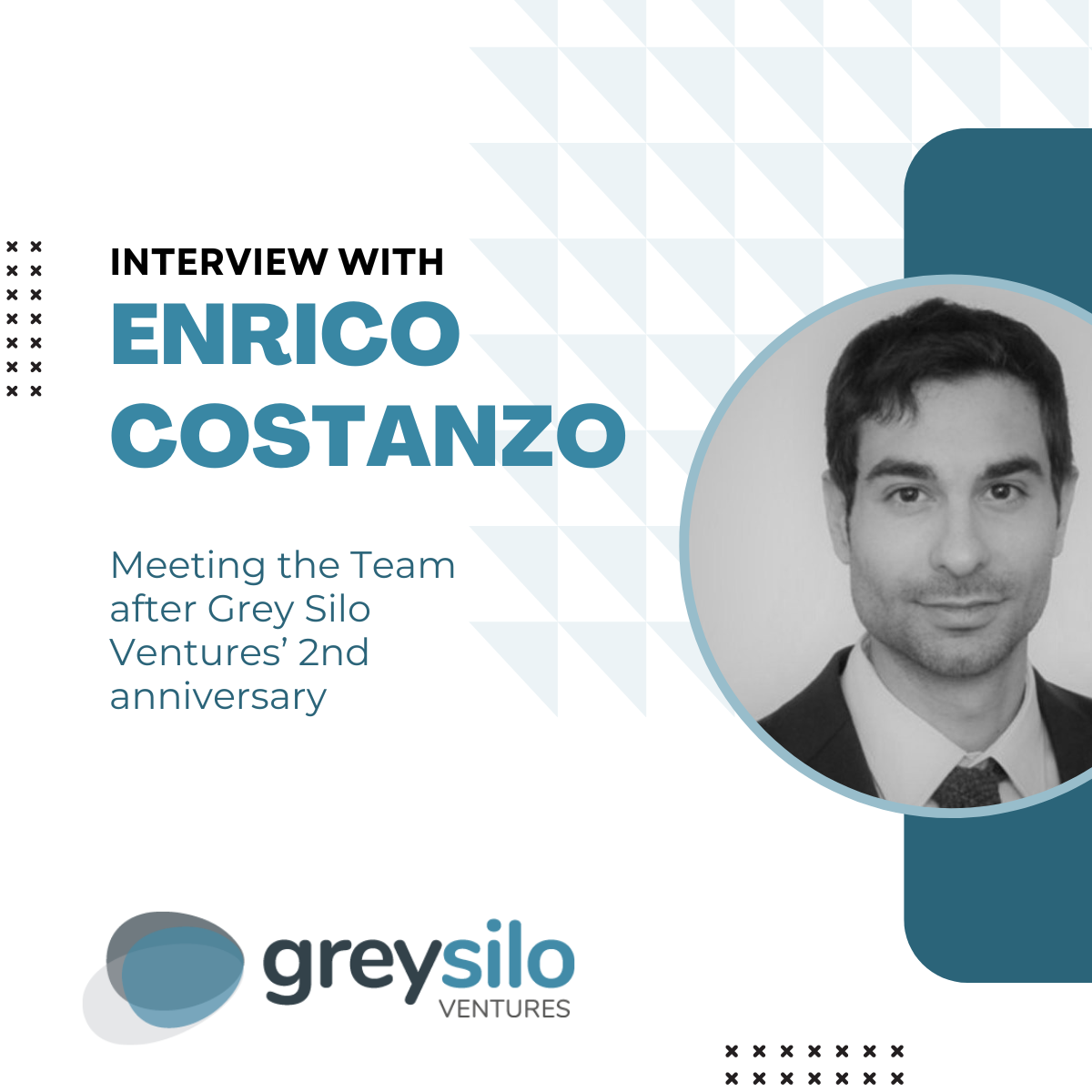
Meeting the team for Grey Silo Ventures’ 2nd anniversary: Enrico Costanzo
Two years after the birth of Grey Silo Ventures, let’s look in the rearview mirror of the activities carried out, the developments in the food tech sector, including risks and opportunities, and the upcoming challenges to be faced.
In this second interview we asked Enrico Costanzo, Innovation Manager of Cereal Docks Group and member of the Advisory Board of Grey Silo Ventures to tell us his perspective on these two years of activity and on the qualities that Grey Silo Ventures looks for in innovative teams to build together a sustainable future for the agrifood sector.
- How does Grey Silo Ventures differentiate its investment strategy within the food-tech and ag-tech sectors compared to traditional venture capital firms, considering the unique challenges and opportunities these industries present?
In addition to the financial goal common to every VC fund, Grey Silo Ventures also has strategic objectives. These are outlined by our investment thesis: non-animal-based ingredients, fermentation-based ingredients, agri-tech solutions, and cellular agriculture. The rationale behind these choices extends beyond mere knowledge, expertise, and legitimacy, typical of financial funds; it is closely aligned with the innovation strategy of the Cereal Docks Group. As we transition from commodities to ingredients, Grey Silo Ventures provides a unique ‘panorama terrace’ for anticipating innovations that have the potential to significantly impact our business in the medium to long term. Furthermore, in certain cases, we can facilitate relevant open-innovation initiatives. An example of this is the development of the Sistema Green+ app for farmers within our supply chain, a project undertaken in collaboration with X-Farm, one of our portfolio companies.
- Could you discuss a recent successful investment or partnership within the food-tech and ag-tech sectors that Grey Silo Ventures has been involved in, and what factors contributed to its success?
Alongside our previous partnership with X-Farm in developing the Sistema Green+ app, we’ve discovered an exciting collaboration opportunity with Foreverland, an alternative chocolate startup. They are serving as an unexpected sandbox for one of our upcoming corporate innovations: an alternative to palm oil, butter, and other saturated fats, entirely based on sunflower oil. This promising collaboration has the potential to accelerate the development of both our and their products!
- What are in your opinion some of the most promising technologies within ag-tech and functional ingredients that could make the biggest impact on the current food systems?
First, let me point out that, as Grey Silo Ventures, we are providing deep insights about different innovations we are investigating through our ‘Position Papers’ series (two publications a year). I can personally emphasize the area of alternative fats. Last year, we stated that this area was akin to where the alternative protein area was ten years ago. At the beginning of this year, even Bill Gates shared an interesting update about his investments in the alternative fat area, indicating that, thus far, our predictions have been proving accurate!
- What are the fundamentals pillars and characteristics that an early-stage company in agri-food tech should mandatorily have in 2024 in order to secure funding and keep growing?
The team comes first, as usual. But in our case, it means something very specific: we look for outperforming, collaborative teams able to understand the food product they have from several angles, including cooking. We seek teams with not only scientists and ex-consultants but also marketing experts and chefs/food technologists. If not within the team initially, at least through key external collaborations. Then, we look for teams able to fully understand the implications of scale-up. Scaling up doesn’t just mean changing scale, from the small tube in the lab to the bigger tank in the plant. It means changing everything! Most of the teams we meet are not even aware of this point. Next, we look for teams that understand the hurdles of regulations in food and what quality and safety mean, and how to cope with them. Then, yes, a startup should have at least a proof of concept, but a proof of concept where the team clearly demonstrates an understanding and foresight of all the aforementioned points. Furthermore, such a proof of concept/product should address a clear need or pain point, where you can quantify the impact. Too many startups present ‘solutions’ in search of a problem. Well, then, perhaps they should remain in the lab until the planets align and their solutions become well-suited for new or existing needs or pain points. That’s the moment to step out, assemble a team, and seek funding. Not before.

